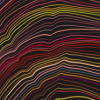- Kava Kava. Kava appeared to be a promising treatment for anxiety. Evidence shows that certain kava extracts (extracts standardized to 70% kavalactones) can lower anxiety and might work as well as prescription anti-anxiety medications called low-dose benzodiazepines. But it might take up to 8 weeks of treatment to see improvement. However, reports of serious liver damage — even with short-term use — caused several European countries to pull it off the market. The Food and Drug Administration has issued warnings but not banned sales in the United States. I’ll avoid using kava until more rigorous safety studies are done. One should especially avoid Kava if they have liver problems or take medications that affect their liver. Cases of hepatotoxicity have been linked to use of the aerial portions of the plant, i.e. stems, leaves, etc. --traditionally discarded by native drinkers--and to high-concentration alcohol extracts--as opposed to the aqueous extracts used traditionally. With this in mind, it is pretty safe to assume that aqueous extracts of the rhizome (tea prepared with the root) are not dangerous to most individuals.
Mechanism of Action: UPREGULATION of the GABA RECEPTORS, specifically via INCREASING RECEPTOR DENSITY, there concomitantly exists just as many (if not more) studies that appear to demonstrate that KAVA KAVA is indeed a GABA RECEPTOR AGONIST.
- Passionflower. A few small clinical trials suggest that passionflower might help with anxiety. In many commercial products, passionflower is combined with other herbs, making it difficult to distinguish the unique qualities of each herb. Passionflower is generally considered safe when taken as directed, but some studies found it can cause drowsiness, dizziness and confusion.
- Valerian. In some studies, people who used valerian reported less anxiety and stress. In other studies, people reported no benefit. Valerian is generally considered safe at recommended doses, but since long-term safety trials are lacking, don't take it for more than a few weeks at a time. It can cause some side effects such as headaches and drowsiness.
- Chamomile. Limited data shows that short-term use of chamomile is generally considered safe and can be effective in reducing symptoms of anxiety. Use of chamomile can cause allergic reactions in some people who are sensitive to the family of plants that includes chamomile. Other members of this family are ragweed, marigolds, daisies and chrysanthemums.
- Lavender. Some evidence suggests that oral lavender or aromatherapy with lavender can reduce anxiety; however, evidence is preliminary and limited. Oral lavender can cause constipation and headache. It also can increase appetite and the sedative effect of other medications and supplements and can cause low blood pressure.
- Lemon balm. Preliminary research shows lemon balm can reduce some symptoms of anxiety, such as nervousness and excitability. Lemon balm is generally well-tolerated and considered safe for short-term use, but can cause nausea and abdominal pain.













































